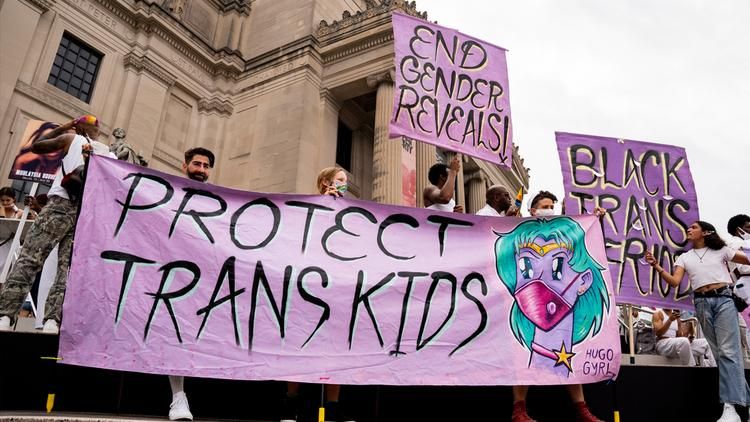Study: Hormone Therapy Connected to Lower Suicide Risk in Trans Youth
A new study from the Trevor Project has found that gender-affirming hormone therapy (GAHT) is significantly linked to lower rates of depression, suicidal thoughts, and suicide attempts among transgender and nonbinary youth.
The research, published Tuesday in the peer-reviewed Journal of Adolescent Health, emphasized the need to expand access to gender-affirming medical care for youth, according to a press release.
“Association of Gender-Affirming Hormone Therapy with Depression, Thoughts of Suicide, and Attempted Suicide among Transgender and Nonbinary Youth” is the first large-scale study to investigate GAHT among trans and nonbinary youth. It’s based on a sample of more than 9,000. The average age for those sampled was a bit over 17 and a half.
“Prior to this research, there were no large-scale studies examining the mental health of transgender and nonbinary youth in relation to gender-affirming hormone therapy,” Jonah DeChants, a research scientist at the Trevor Project, told The Advocate in an email. “Especially given the ongoing political debates around access to such care, it is critical to understand the benefits that hormone therapy can have for trans and nonbinary youth across the United States.”
The group already found that 52 percent of trans and nonbinary youth seriously have considered suicide.
The new study found that 50 percent of all transgender and nonbinary young people said they were not receiving GAHT but would like to, 36 percent were not interested in receiving GAHT, and 14 percent were already receiving GAHT.
Researchers found that young people who did receive GAHT had a lower likelihood of reporting recent depression or considering suicide than those who were not on GAHT but wanted to be. The results also found that youth under 18 that received GAHT had almost 40 percent lower odds of reporting recent depression and a suicide attempt in the past year.
Eighty percent of those receiving GAHT reported that had at least one parent who supported their gender identity.
Another finding related to race.
“While not too surprising based on what we know from previous research, it is important to discuss the fact that youth of color reported much lower rates of receiving GAHT when they wanted it compared to white youth,” DeChants said. “This speaks to the reality that, unfortunately, barriers to accessing health care, on a broad spectrum, disproportionately impact communities of color — and we need to make serious, systemic changes to our current healthcare infrastructure to address these barriers.”
DeChants told The Advocate that the research demonstrates that trans and nonbinary young people should have access to gender-affirming hormone therapy. He added that the research team hopes more research can be conducted on the impacts of hormone therapy.
Arkansas already passed legislation banning gender-affirming medical care for youth, and about 20 other states are considering similar legislation, according to the Trevor Project. The research found that preventing access to GAHT from those who would like to receive it could negatively impact their mental health.
“This past year, we have witnessed a wave of anti-LGBTQ legislation being introduced all across the country,” DeChants explained. “Our findings serve as a timely reminder that the issue of gender-affirming care for trans and nonbinary youth is not a political bargaining chip; it is best-practice medical care that can save lives.”
If you or someone you know are feeling distressed, call the National Suicide Prevention Hotline at (800) 273-8255. If you are an LGBTQ+ youth and need help, you can reach out to the Trevor Project at (866) 488-7386, via chat at TheTrevorProject.org/Get-Help, or text START to 678678 to talk to someone 24/7.

No comments:
Post a Comment